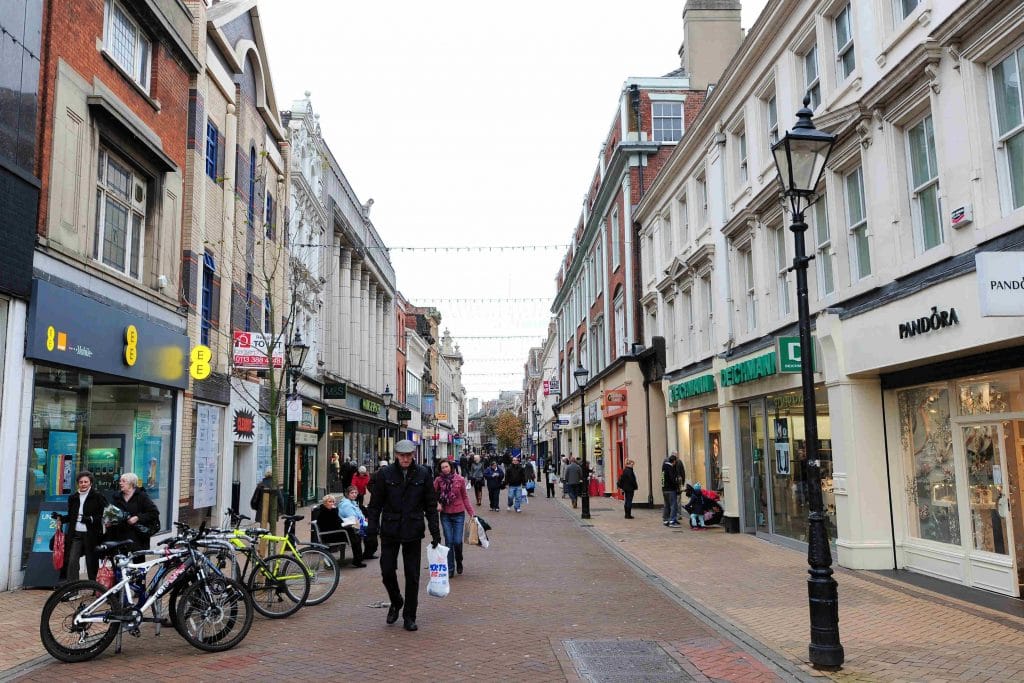Global real estate advisor CBRE has said a combination of structural changes, cyclical economic influences and one-off temporary factors have been behind the failure of a series of UK retailers this year – not just the rise of ecommerce.
The firm’s new Weathering the Perfect Storm in UK Retail Real Estate report indicates that while the growth of ecommerce is often cited as a key factor in the demise of retail, it cannot be considered as the sole or even as a major cause of store closures.
CBRE also argues that UK retailers and their landlords are experiencing a “perfect storm” in which a combination of adverse circumstances has led to a range of retailer failures or restructurings.
It said structural changes in the form of consumers’ spending preferences and the growth of ecommerce have in part contributed to retailers’ performance.
READ MORE:
However, economic factors have also challenged retailers.
This includes increased wages due to a decrease in unemployment and wage growth above inflation, combined with EU workforce shortages which have had implications for the retail sector.
Real disposable income growth has also been extremely weak over the last decade, and Brexit-related uncertainty has also added extra pressure on consumer prices through imported inflation.
One-off public policy changes, such as the controversial business rates revaluation in 2017, have also served to add substantial cost pressure on retailers.
In London, retailers experienced an average increase in their bills of 14 per cent compared with the average decrease of five per cent thanks to the business rates revaluation.
However, CBRE said that as revaluations move to a three-yearly cycle from 2021, this effect is unlikely to be as pronounced in future as it has been recently.
Government policies aimed at raising wages for low-paid workers have also had a disproportionate effect on the retail sector.
The increase of the National Living Wage and additional cost implications of the Apprentice Levy has added to the strain, forcing retailers to make tough decisions to manage the increased costs.
Despite this difficult backdrop, CBRE’s report reveals that 2018 has so far seen 30 retailer failures, which is still below the 10-year average of 38.
This figure is also much lower than the 58 collapses seen in 2008, during the height of the global financial crisis.
A popular mechanism for weathering the storm in 2018 has been the use of CVAs to try and restructure businesses, including rent reductions and store closures.
CBRE said that while this process can help retailers, it does not provide a guarantee of recovery.
“Landlords and investors might resent CVAs as an ‘easy’ way to reduce rents for retailers,” CBRE head of UK retail Rhodri Davies said.
“However often CVAs provide a better alternative to retailers entering into liquidation or administration, which should ideally be avoided if the retailer is trading well.”
Tasos Vezyridis, senior director at UK Retail & Logistics Research, added: “Our analysis challenges the usual excuse that the slow and steady rise of ecommerce has been the prime or only cause of retailer failure.
“While ecommerce is an important influence, its strong growth can only have come as a surprise to the sleepiest retailers in 2017 and 2018.
“A potent mix of other structural, cyclical and temporary factors have been involved in retail failures – not least Brexit.
“In many cases, retailers seem simply to have taken their eye off their customer. The evidence is clear that retailers with a good business model, who proactively close and open stores to follow consumer trends, have survived this ‘perfect storm’.”
The report also finds that landlords and retailers will need to work more closely together to gain a better understanding of customers and agree lease terms that are more flexible and suitable for the current market conditions.
Davies said: “To survive in this new environment, retailers need to continuously review their understanding of the modern consumer as well as their respective property portfolios, especially through the use of data insight, to adjust constantly and evolve their proposition and locations.
“Losing sight of the customer and their property holdings might not matter when the economy is doing well, but the evidence is that doing so in a downturn can be fatal, especially when retailers are slow to adapt to structural change.”
Click here to sign up to Retail Gazette‘s free daily email newsletter


















